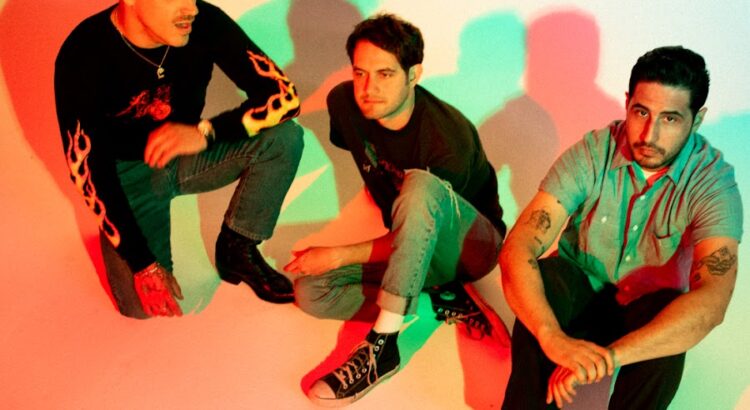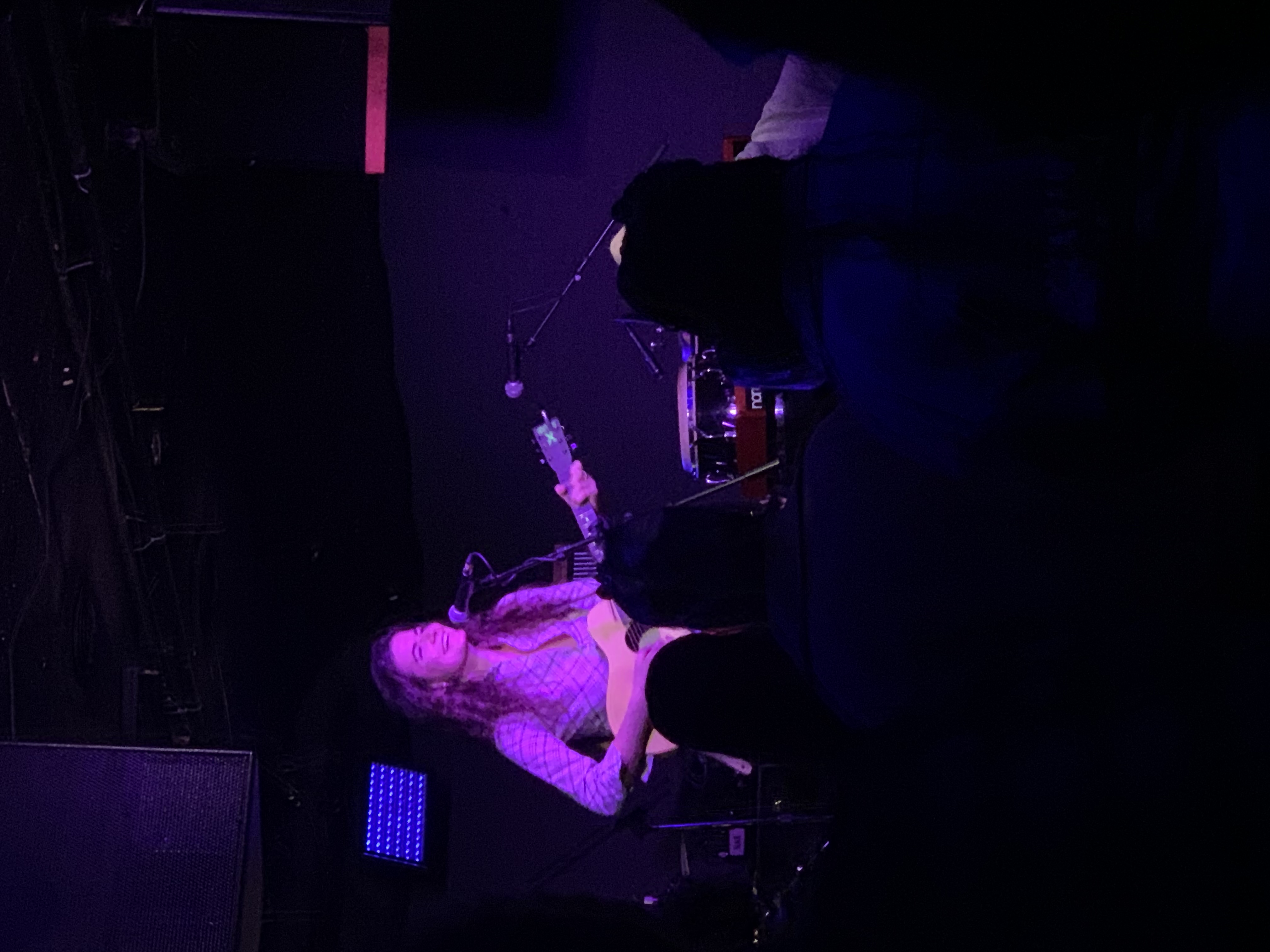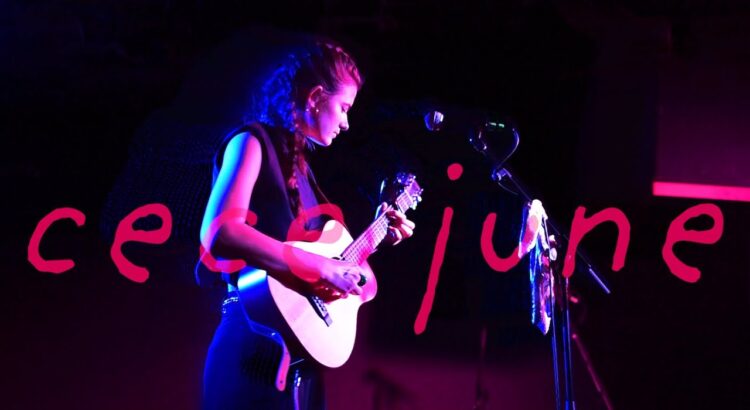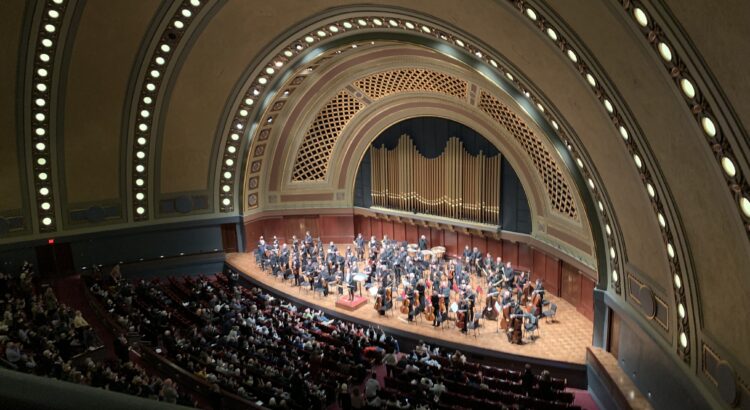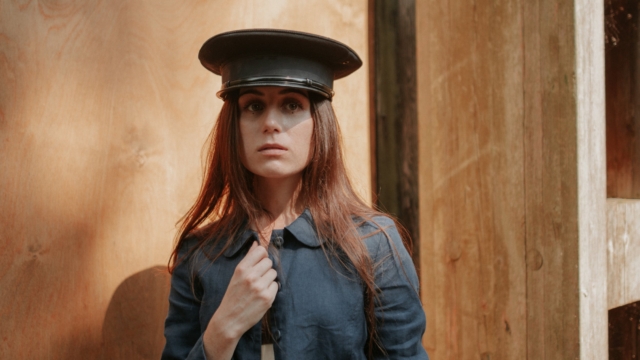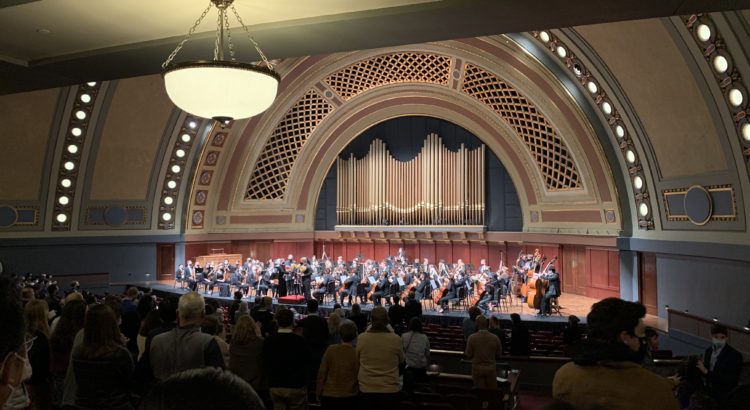Amid the stresses of midterm season一because, let’s be real, it’s never truly confined within a “midterm week”一I did not anticipate the restorative effects of spending a couple of hours in the cushy seats of Hill Auditorium, bathed in ringing live music and the warm glow of stage lights. The Campus Symphony and Campus Philharmonia Orchestras, made up of non-music major students, performed a delightful fall concert last Sunday night. Despite it being my first orchestral concert here, having friends scattered around in the audience and on stage gave the performance a very welcoming, intimate feel.
The Campus Philharmonia Orchestra opened the concert with a bold, contemporary piece by Chad “Sir Wick” Hughes. Visions of a Renaissance featured many quirky textural elements, blurry meter changes, and grand melodic lines that came together to paint quick snapshots of a chaotic bustling city. As a first-time listen, the piece is shocking and confusing. However, I find that the charm of contemporary music is that you fall more in love with each piece with every listen.
Next, we were rewarded with the familiar haunting introduction to Beethoven’s Symphony No. 7 2nd movement. The lower strings did an excellent job of establishing the rumbling warm, ominous motif for the violins to glide over. However, playing such a widely known piece also comes with high expectations一I couldn’t help but wish for some more delicate phrasing in the exposed melody.
CPO’s third piece, Dvorak’s Slavonic Dances Op. 46, No. 2, was dark, lively, and distinctly nationalistic. Ensemble-wise, the performance was very cohesive and had a lovely push-and-pull of tempo and dynamics throughout.
The final piece, Edward German’s Three Dances from Henry VIII, was a refreshing conclusion to follow the richness of the previous pieces. Morris Dance featured a march-like drum with a crisp melody weaving through the beats, while Shepherd’s Dance felt more playful with light bass drum pulses throughout. The final movement, Torch Dance, was busy, intense, and filled with tension.
After a brief intermission, the Campus Symphony Orchestra took to the stage with the silky cinematic tones of “Overture” from The Song of Hiawatha. The piece opened with a beautiful harp solo accompanied by soft strings and transitioned into a plush, longing motif that traveled around the orchestra. From my view from the audience, I immediately noticed how every single violinist swayed together to the music.
Following this was Pietro Mascagni’s “Intermezzo” from Cavalleria Rusticana一another pretty piece showing off the ensemble’s lavish tone and phrasing. The introduction was soft, delicate, and purely strings. Soon enough, the woodwinds snuck in echoing the violins, and the low rumble of the basses blended in very nicely.
Finally, we arrived at the part of the concert I was most excited about: Tchaikovsky’s Symphony No. 5 in E Minor. A feat of musical stamina, the four-movement work was excellently executed and a sound to behold. Some of my favorite highlights were the soaring violin melody in the first movement and the bold, triumphant fourth movement. If you are unfamiliar with the piece, you should definitely give it a listen during your next study session. I also have to commend the soloist for the famous horn solo at the beginning of the second movement. After the final note, the audience immediately launched into a well-deserved standing ovation一though I wished they allowed some time for the last sound to ring!
Again, I’d like to congratulate all the soloists and musicians for their wonderful performance on Sunday. I recommend everyone to come to support them at next semester’s concert!

